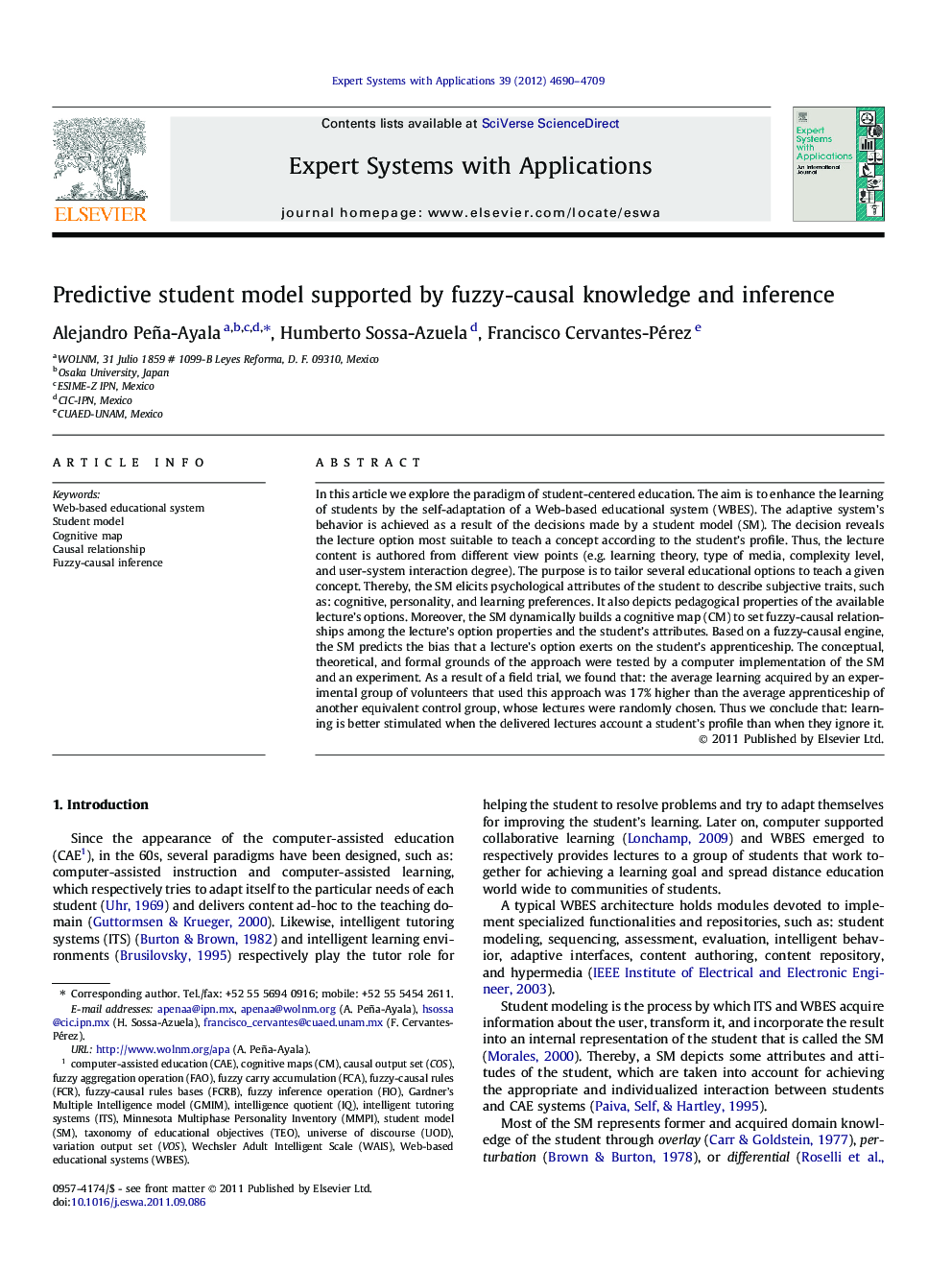| کد مقاله | کد نشریه | سال انتشار | مقاله انگلیسی | نسخه تمام متن |
|---|---|---|---|---|
| 384805 | 660855 | 2012 | 20 صفحه PDF | دانلود رایگان |

In this article we explore the paradigm of student-centered education. The aim is to enhance the learning of students by the self-adaptation of a Web-based educational system (WBES). The adaptive system’s behavior is achieved as a result of the decisions made by a student model (SM). The decision reveals the lecture option most suitable to teach a concept according to the student’s profile. Thus, the lecture content is authored from different view points (e.g. learning theory, type of media, complexity level, and user-system interaction degree). The purpose is to tailor several educational options to teach a given concept. Thereby, the SM elicits psychological attributes of the student to describe subjective traits, such as: cognitive, personality, and learning preferences. It also depicts pedagogical properties of the available lecture’s options. Moreover, the SM dynamically builds a cognitive map (CM) to set fuzzy-causal relationships among the lecture’s option properties and the student’s attributes. Based on a fuzzy-causal engine, the SM predicts the bias that a lecture’s option exerts on the student’s apprenticeship. The conceptual, theoretical, and formal grounds of the approach were tested by a computer implementation of the SM and an experiment. As a result of a field trial, we found that: the average learning acquired by an experimental group of volunteers that used this approach was 17% higher than the average apprenticeship of another equivalent control group, whose lectures were randomly chosen. Thus we conclude that: learning is better stimulated when the delivered lectures account a student’s profile than when they ignore it.
► Key psychological attributes are used to outline the student model.
► Main educational content traits are accounted to depict lectures.
► Fuzzy logic and causality support our proactive student model.
► How a lecture exerts the student’s learning is fuzzy-causal inferred.
► Tests showed: our model contributes to enhance student’s learning.
Journal: Expert Systems with Applications - Volume 39, Issue 5, April 2012, Pages 4690–4709